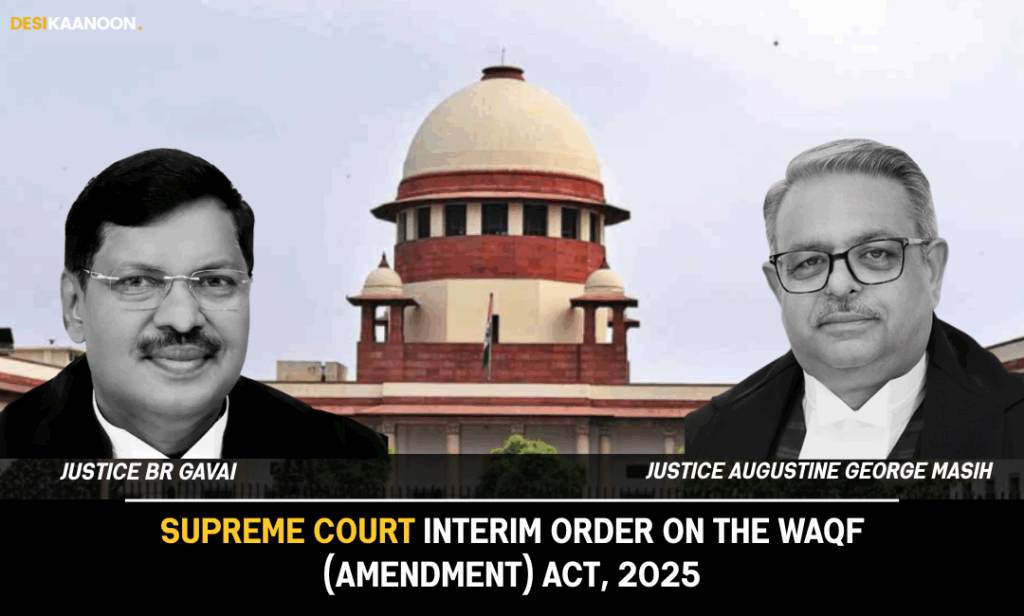Abhishek Choudhary
On September 15, 2025, the Supreme Court of India delivered an interim order concerning the Waqf (Amendment) Act, 2025. Instead of blocking the law in its entirety, the judges chose to pause only a few provisions that appeared constitutionally doubtful. In doing so, the Court showed a cautious approach reforms brought by Parliament were not dismissed outright, yet they were not allowed to operate unchecked either. The order indicates the judiciary’s intent to let legislative changes move forward while making sure they do not compromise fundamental legal principles.
One suspended clause required an individual to have practiced Islam for at least five years before establishing a waqf. The Court kept this provision on hold until the government frames precise rules clarifying what constitutes practicing Islam. This safeguard prevents arbitrary or subjective interpretation of religious practice by authorities and ensures equal opportunity in creating waqf properties.
One of the more disputed provisions gave district collectors the power to declare whether land identified as waqf was actually government property. The Supreme Court chose to pause this clause, stressing that ownership disputes must be settled in a fair and neutral forum. Allowing administrative officers to make such determinations, the judges warned, could open the door to misuse and weaken the separation between the executive and the judiciary.
The Act also introduced non-Muslim representation in waqf boards. The Court allowed this provision to operate but added a significant observation: the Chief Executive Officer of a waqf board should preferably be a Muslim. The Court clarified that while the appointment of a non-Muslim CEO is legally permissible, the religious character of waqf institutions requires sensitivity in practice.
While giving its reasons, the Court reminded that laws made by Parliament are generally assumed to be valid. It added that an order of stay should come only in very unusual situations, and only when immediate harm is obvious. Some clauses of the amendment, in the judges’ view, may require a closer look, but that alone was not enough to suspend the entire law. This temporary arrangement allows Parliament’s will to operate, yet still leaves space to protect the rights of minority groups.
The order has important implications for waqf governance. Religious boards must wait for formal rules before enforcing the five-year practice requirement. Communities are also assured that arbitrary state action will not deprive them of waqf property rights. The Court’s observations further guide the government on maintaining proportional representation within waqf institutions.
The Bench consisted of Chief Justice B. R. Gavai and Justice Augustine George Masih. Chief Justice Gavai, writing the order, noted that although no binding direction was being issued, it would be appropriate for the Centre to avoid nominating more than three non-Muslims to the eleven-member Central Waqf Council and to ensure that its ex-officio chairperson belongs to the Muslim community. This recommendation reflects a judicial attempt to balance inclusivity with the essential character of waqf administration.
Case Title: In re: The Waqf (Amendment) Act, 2025
Case Citation: In Re: The Waqf (Amendment) Act, 2025, Writ Petition (Civil) No. 276 of 2025
Bench: Chief Justice of India B.R. Gavai and Justice Augustine George Masih
Click here to access the Order
Instagram: Click here
LinkedIn: Click here
For Collaboration and Business: info.desikaanoon@gmail.com

